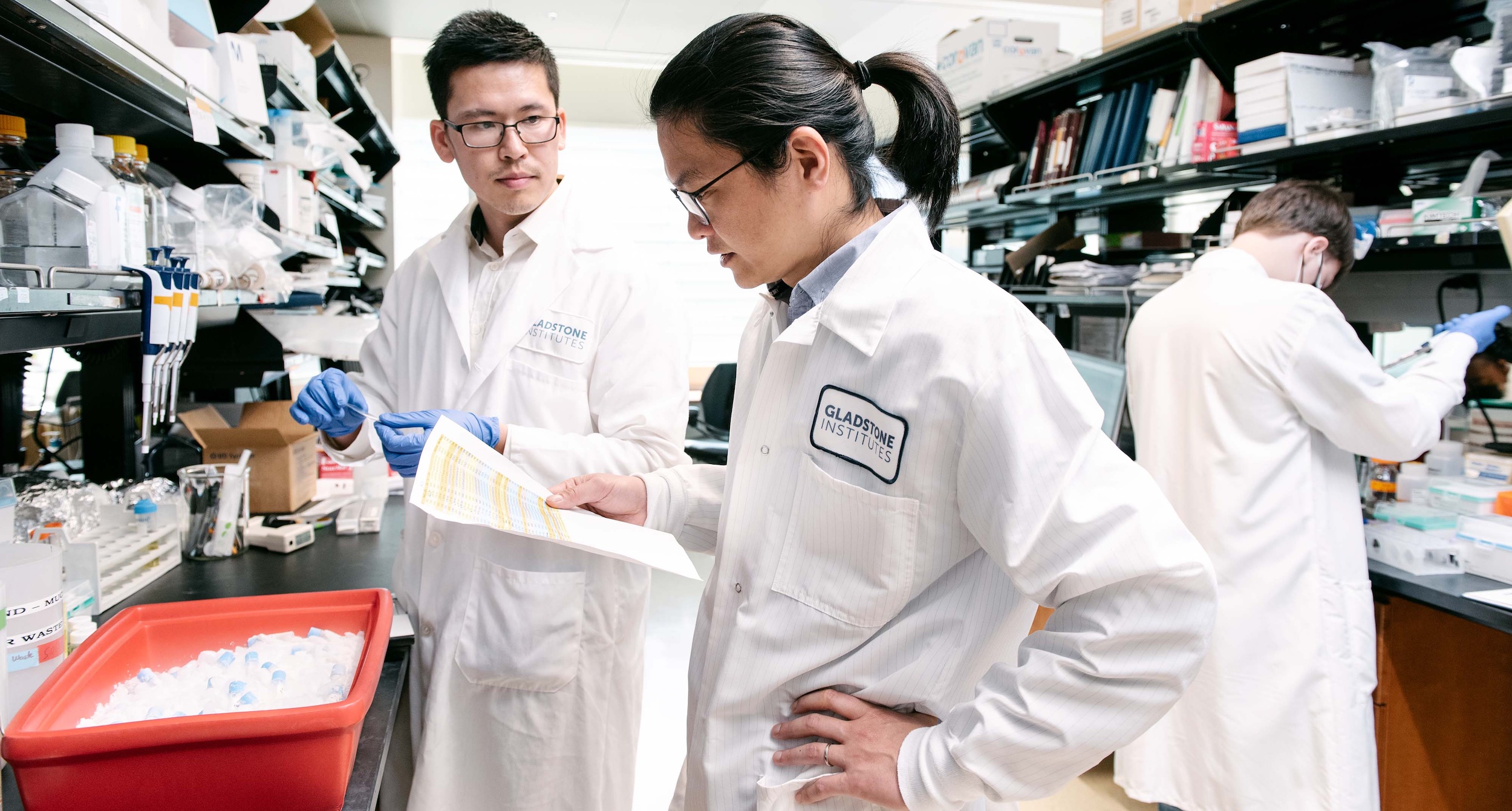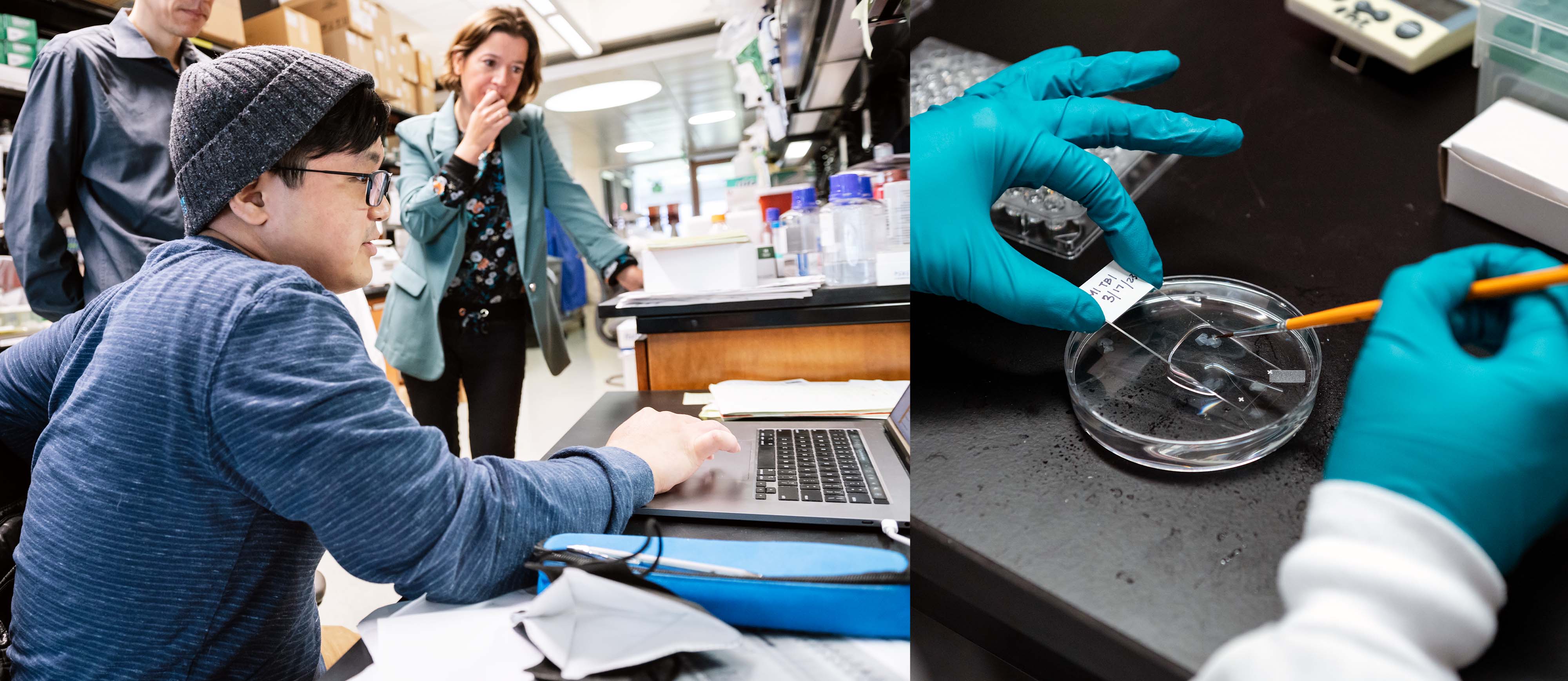Applications are now open for the NOMIS–Gladstone Fellowship Program at the Gladstone Institute of Neurological Disease (GIND).
This interdisciplinary training and research program offers exceptional postdoctoral scientists the freedom to address big unanswered questions at the intersection of two or more scientific disciplines.
Gladstone provides an ideal environment for training in integrative neuroscience with dedicated mentorship by world-class investigators. After completing their research project with two co-mentors, NOMIS Fellows will be in an ideal position to launch independent careers.
Collaborations with the University of California San Francisco (UCSF) further expand the opportunities for professional and career development. NOMIS–Gladstone Fellows will have a primary appointment at GIND and an affiliation with UCSF’s Department of Neurology.

Fellowship Benefits
- Access to state-of-the-art facilities and resources at Gladstone and UCSF
- Freedom to explore high-risk concepts
- Acquire qualifications needed to compete for an independent academic faculty position
- Fully funded two-year position with the possibility of performance-based extensions up to a total of four years
- Support for research and travel
- Annual salary of $80–95,000 plus benefits and an annual $10,000 housing supplement
- Opportunity to acquire interdisciplinary research skills through co-mentorship in a highly collaborative environment
- Integration into outstanding Gladstone, UCSF, and NOMIS Foundation networks of pioneering researchers
To solve complex neuroscientific and biomedical problems, our fellowship program teaches outstanding postdoctoral scholars how to creatively combine leading-edge technologies and integrate discoveries across experimental models and human biology.
Focus of Research and Training
Mechanisms and Topics
- Cellular and synaptic basis of behavior
- Functions and roles of proteins implicated in adaptive and maladaptive brain plasticity
- Interactions between the immune and nervous systems
- Biological importance of the neurovascular junction
- Communication between neuronal and glial cells
- Regulation of brain rhythms by interneurons and glia
- Uniqueness of brain energy metabolism
Technological Skill Acquisition
- Artificial intelligence (AI) and machine learning
- Behavioral phenotyping
- Cellular reprogramming
- Chemo- and optogenetics
- Gene editing and genetic screening
- In vivo imaging and electrophysiology
- “Omics”
Eligibility Requirements
- PhD or MD
- Strong interest in interdisciplinary neuroscience training
- Genuine commitment to developing an independent academic career
- Outstanding records of relevant achievements and creativity
- Evidence for high levels of curiosity, imagination, and perseverance


